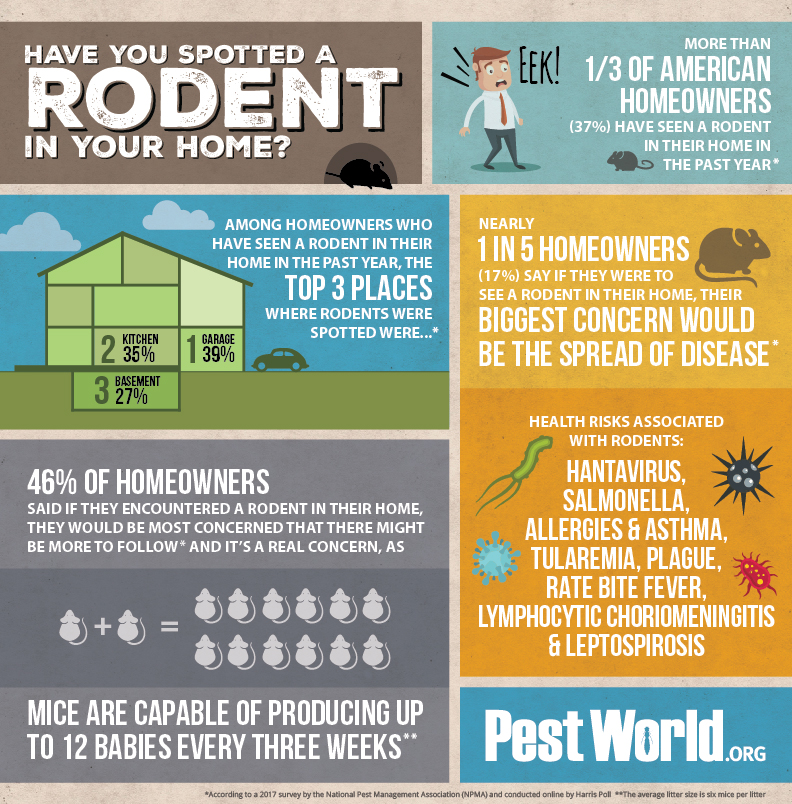The Duty Of Insect Control In Food Safety And Hygiene
The Duty Of Insect Control In Food Safety And Hygiene
Blog Article
Post By-Clark Bork
Are you aware of the covert risks that pests present to the safety and hygiene of your food? From rats to pests, these undesirable visitors can pollute your components, surfaces, and storage locations.
Integrated rodent management write-up checks out the vital duty of insect control in preserving the greatest criteria of food safety and security and health. Discover efficient methods and prevention procedures that will assist you safeguard your company, consumers, and online reputation.
Don't allow pests endanger the high quality of your food.
The Impact of Bugs on Food Security and Hygiene
In your kitchen, insects can have a substantial effect on food security and health. These undesirable guests, such as rodents, pests, and cockroaches, can contaminate your food, surfaces, and tools with harmful bacteria, infections, and bloodsuckers. They can conveniently access your pantry, cabinets, and even your refrigerator, leaving behind droppings, urine, and hair.
Not only can they ruin your food by chewing through packaging, but they can also spread out conditions like Salmonella, E.coli, and Listeria. Visualize preparing a dish for your family, not aware that the ingredients you're using are currently contaminated.
It's important to take instant action to prevent and regulate pests in your kitchen. Normal cleaning, appropriate food storage space, and expert insect control steps are necessary to ensure food safety and keep a sanitary environment in your kitchen.
Reliable Parasite Control Techniques for the Food Sector
Applying effective bug control strategies is critical for keeping food security and hygiene in the food market. By implementing these strategies, you can prevent pests from polluting the food and make certain that your items are secure for usage.
IoT in pest control is to on a regular basis check and check your facility for signs of parasite activity. This includes checking for droppings, nests, or any kind of damage brought on by bugs.
It's additionally essential to seal all access points to protect against bugs from entering the facility. Regular cleansing and cleanliness are crucial, as pests are drawn in to food residue and spills.
In addition, correct waste management is vital to avoid the buildup of food waste that can draw in pests.
Preserving Hygiene Requirements With Insect Prevention Measures
To preserve health criteria, you need to frequently apply pest prevention actions. By taking aggressive actions to stop bugs from entering your food establishment, you can ensure the safety and security and sanitation of your properties. Right here are some efficient pest prevention procedures to consider:
- Seal all splits and holes: Bugs can get in with even the tiniest openings. Consistently evaluate and seal any spaces in doors, home windows, wall surfaces, and floors to keep pests out.
- Appropriate waste monitoring: Deal with food waste quickly and securely in secured containers. This will minimize the tourist attraction of bugs and avoid infestations.
- Regular cleansing and sanitizing: Keeping sanitation in your establishment is critical. Routinely tidy and sterilize all areas, paying special interest to locations where parasites may hide or breed.
- Execute a monitoring system: Routinely check your premises for indicators of bug task. Set up insect tracking tools, such as traps or sensing units, to recognize and resolve any type of possible issues early.
Conclusion
So remember, when it pertains to food security and hygiene, bug control plays an important duty.
By implementing effective bug control approaches and preventive measures, we can make certain the highest possible requirements of sanitation and security in the food industry.
Don't let insects endanger the high quality of our food; let's stand together and protect our health and health.
